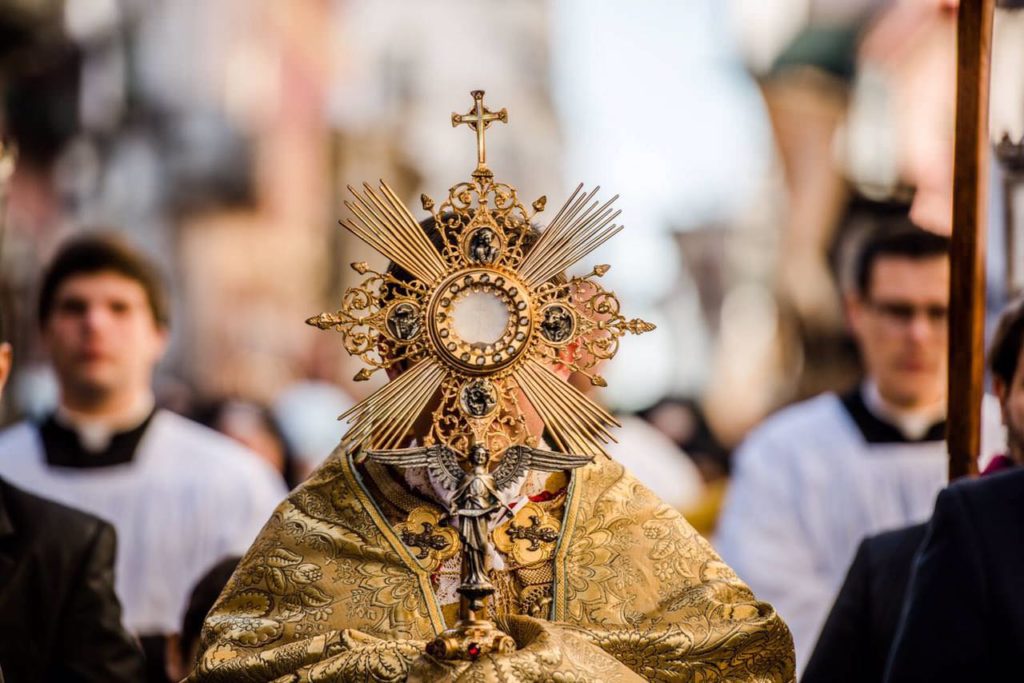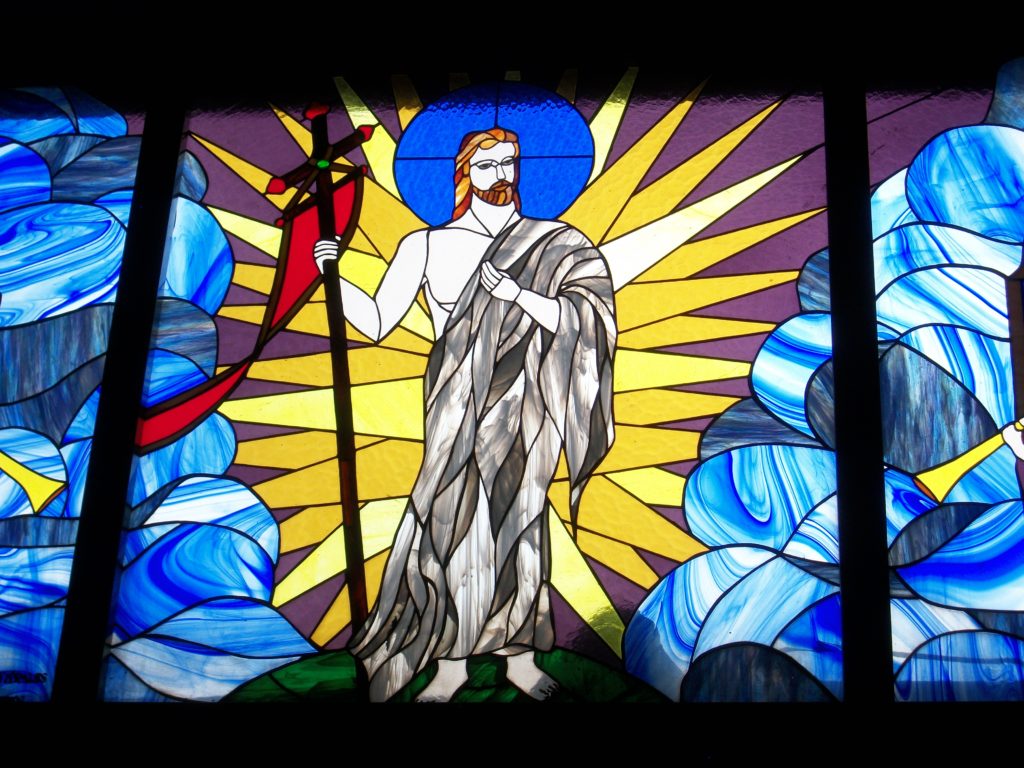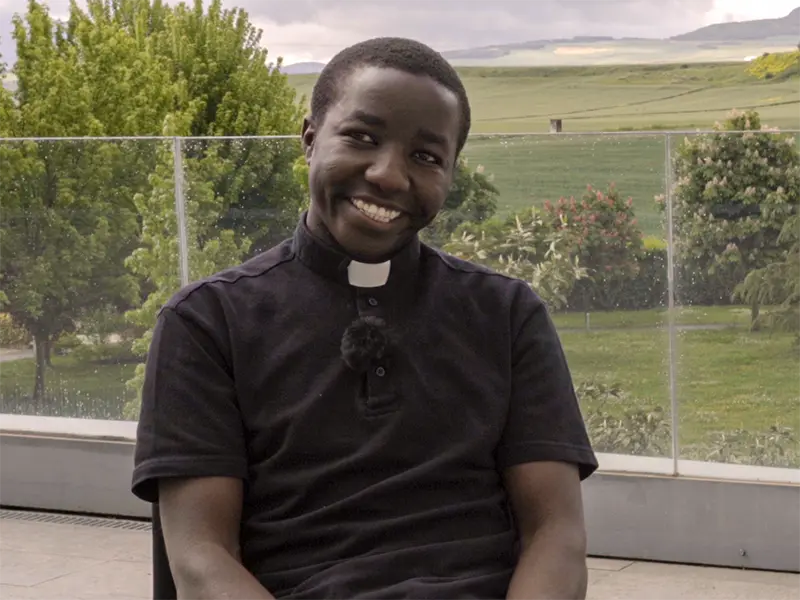“I am with you every day, until the end of time”: Commentary Fr. Jorge Miró
Corpus Christi, Sunday in June 2024

Father Jorge Miró shares with Exaudi readers his commentary on today’s Gospel, Sunday, June 2, 2024, titled “I am with you every day, until the end of time.”
***
Today we celebrate the solemnity of Corpus Christi. It is the solemn and public feast of the Eucharist, the sacrament of the Body and Blood of Christ.
The Word that we proclaim this year tells us about the Lord’s Alliance with his people. God loves us, he has created us for love and to love, and he calls us to live a new life. A life of friendship and communion with Him.
We are not alone. He who believes is never alone. The Lord fulfills his Word: I am with you every day, until the end of time (cf. Mt 28, 20).
The risen Jesus Christ is present in multiple ways in his Church: in his Word, in the prayer of his Church, wherever two or three are gathered in my name (cf. Mt 18, 20), in the poor… (cf. Mt 25, 31s), in the sacraments of which He is the author, in the sacrifice of the mass and in the person of the minister. But, above all, (he is present) under the Eucharistic species (SC 7). In the Most Holy Sacrament of the Eucharist are “truly, really and substantially contained the Body and Blood, together with the soul and divinity of our Lord Jesus Christ, and, consequently, the entire Christ.” This presence is called “real”, not exclusively, as if the other presences were not “real”, but par excellence, because it is substantial, and through it Christ, God and man, becomes totally present (Cf. Catechism, 1373s).
And this presence continues outside of Mass, in the Tabernacle. And he calls us to Adoration, to proclaim that Jesus Christ is the Lord, the Savior, the King of kings. He invites us to prostrate ourselves before the Lord, to lie on his chest, like the beloved disciple (cf. Jn 13:23): you are that beloved disciple. The Lord invites you to approach Him, fall down, worship Him, give Him your whole life, also your sufferings, your worries and sins… and you can experience rest: Come to me, all of you who are tired and burdened, and I will relieve you (cf. Mt 11, 28).
The Eucharist also reminds us that we are not called to live our faith in a solitary, individualistic way. No. The Lord has called us to live in faith in his body, which is the Church.
We cannot “pass” the Eucharist, without it, we cannot live. Without it, our faith languishes.
We need to participate in the Eucharist every Sunday. Sunday is the Lord’s Day, a day that we must consecrate and dedicate to the Lord: it is the day of rest, of encountering the Lord in his Word and in the Eucharist, of sharing time with family and friends, of live charity by helping others.
The Eucharist must be noticed in daily life: he, who truly enters into communion with the Lord, bears witness every day to what he celebrates. Not that he is perfect, but that he wants to be holy, that he wants to live life in the Spirit every day.
All this happens through the power of the Holy Spirit, who makes all believers become, in Christ, a living sacrifice for the glory of God (cf. Rom 12:1). The Eucharist is a pledge of eternal life, because whoever eats this bread will live forever. And the bread that I will give is my flesh for the life of the world (cf. Jn 6, 51-52).
And for this reason, the Eucharist leads to charity, fraternal love and leads to blessing and praise. We have sung it in the Psalm: How will I repay the Lord for all the good that he has done to me? I will offer you a sacrifice of praise, calling on your name, Lord.
Happy Sunday!
Happy Eucharist!
Related

Reflection by Bishop Enrique Díaz: Alleluia, alleluia
Enrique Díaz
20 April, 2025
5 min

Christ is Risen! Alleluia! Commentary by Fr. Jorge Miró
Jorge Miró
20 April, 2025
3 min

Easter: Mystery of Freedom
Carlos J. Gallardo
20 April, 2025
5 min

“Being Catholic in Tanzania is a source of pride”
Fundación CARF
16 April, 2025
6 min
 (EN)
(EN)
 (ES)
(ES)
 (IT)
(IT)

